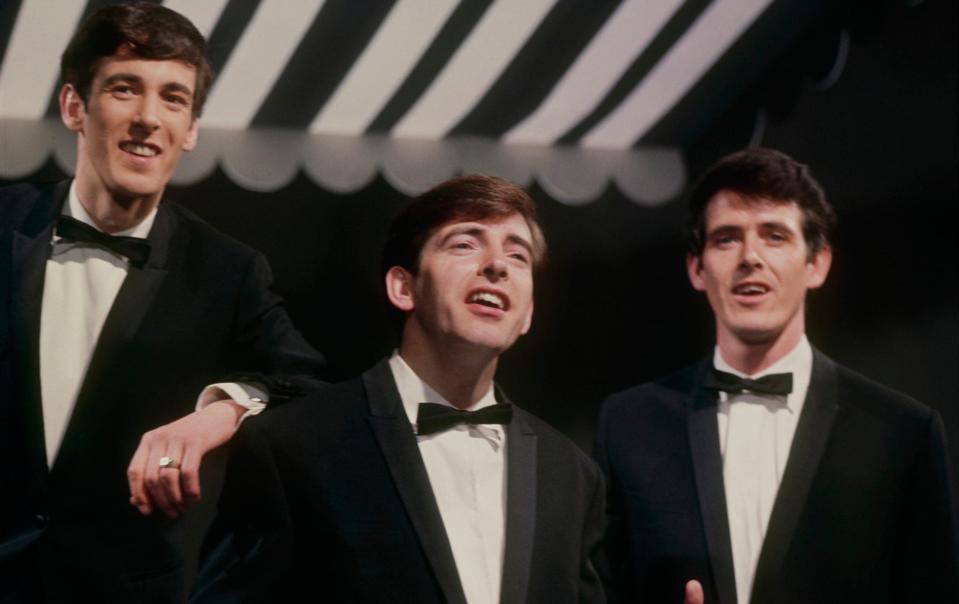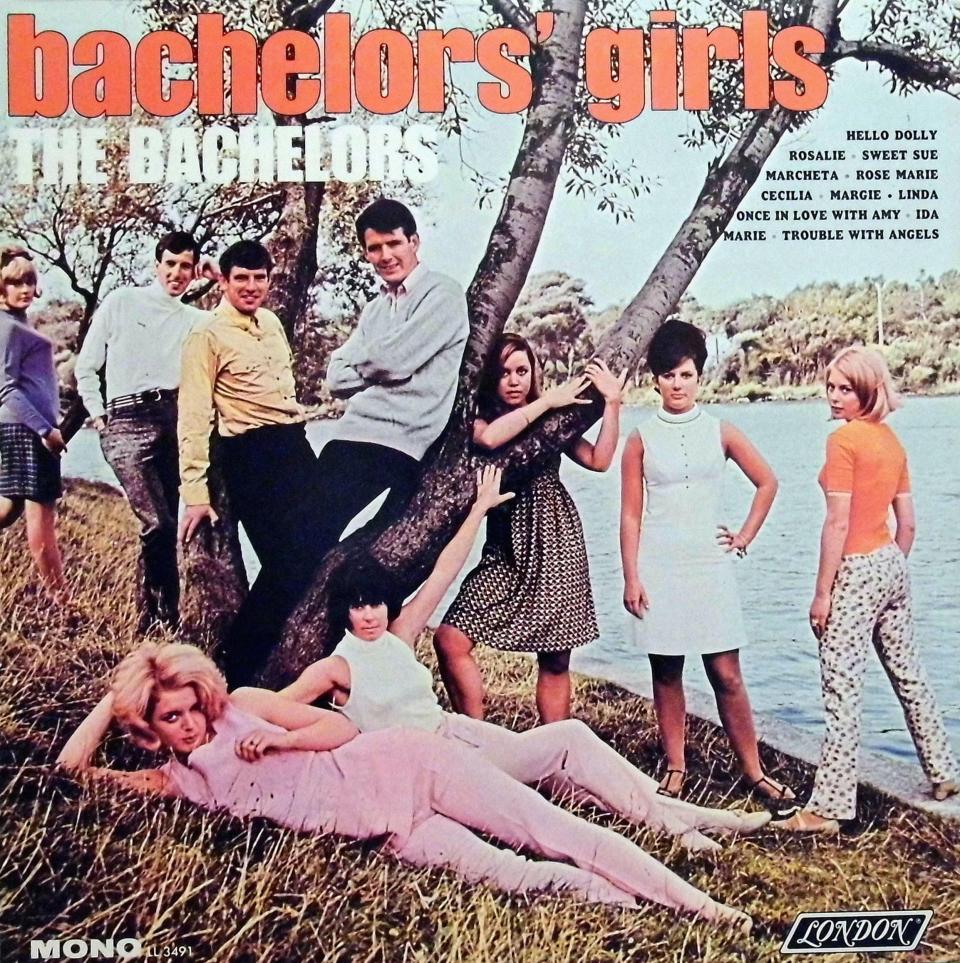Con Cluskey, singer with the Bachelors, the first Irish band to have a UK No 1 single – obituary

Con Cluskey, who has died aged 86, co-founded the Bachelors, an Irish singing trio who had several UK chart hits including Diane and I Believe (both in 1964) before breaking up in a bitter legal battle.
With his brother Declan and a schoolfriend, John Stokes, Cluskey formed a novelty act called the Harmonichords who soon recreated themselves in 1962 as the Bachelors (in fact, two of them were married). Later, no doubt with a touch of irony, acclaimed as “surely Ireland’s first boy band” even though all three were in their mid-twenties, the Bachelors enjoyed numerous chart-topping successes in the 1960s with ballads including I Believe, Charmaine, Ramona, Diane and I Wouldn’t Trade You for the World. Over the years they racked up record sales of 22 million.
Delivered in their trademark close-harmony style, their dramatic cover of I Believe, freighted with spiritual references and originally written in 1952, went on to sell more than a million copies. At two minutes long, it remains one of the shortest pop songs ever recorded. In 1995 a version by Robson Green and Jerome Flynn, alias squaddies Tucker and Garvey in the ITV series Soldier, Soldier, became the fastest-selling non-charity single of the decade.
The group’s biggest international hit Diane, a film theme song from the silent era, was released in 1964, reaching No 1 in the UK singles chart and No 10 in the US. Written by the same songwriters as their debut number Charmaine, Ernö Rapeé and Lew Pollack, and arranged in the same Nashville-inflected style, Diane made the Bachelors the first Irish group to top the UK charts.

As they toured the US and Australia, their singles continued to score hits, Ramona and I Wouldn’t Trade You for the World both peaking at No 4 and No Arms Can Ever Hold You at No 7, all in 1964, the year in which only The Beatles outsold them.
In the course of their career, the group released more than 70 albums, appeared in two films and performed in venues worldwide. The original line-up continued successfully on the cabaret circuit until an acrimonious split between John Stokes and the Cluskeys in 1984, when Stokes was asked to leave the group and responded by taking legal action against the brothers and their company, Bachelors Ltd.
The Cluskeys did not pull their punches, telling the court that Stokes sang “like a drowning rat” (the comedian Eric Morecambe considered the headline the funniest he had ever seen) and that his voice had been overdubbed on some of their records without his knowledge. Stokes responded by saying his voice was perfect. After Stokes received compensation, Peter Phipps replaced him as the new Bachelor, remaining until 1993, when the Cluskey brothers became a duo.
The son of a railway fitter and turner, Conleth Joseph Cluskey was born on November 18 1935 at Inchicore, a suburb of Dublin, and educated at O’Connell School and Bolton Street technical college, where he studied mechanical engineering. He started work as a heating engineer.
As children he and his younger brother Declan had played the harmonica, joining John Stokes to form an instrumental group called the Harmonichords in 1957. Persuaded to add vocals to their act, two years later they played Danny Boy, recorded in Dublin, for The Ed Sullivan Show’s St Patrick’s Day television special, and on Hughie Green’s Opportunity Knocks on Radio Luxembourg. They also featured in Eamonn Andrews’s comedy series Odd Noises on Radio Éireann.

In 1962 their manager Phil Solomon booked them on a five-week British tour supporting the Danish-Dutch folk singers Nina and Frederik. Signing them to the Decca label, the group’s producer and mentor Dick Rowe urged them to “do something like Frank Ifield but with a Karl Denver feel” (a highlight of the Bachelors’ stage act was the threesome doing an impression of the Scottish yodeller Karl Denver). Con told him: “If you’re paying the money, I can sing like anybody.”
A little over a year after supporting another solo singer, Adam Faith, they released their reworking of a 1920s number, Charmaine, with its gently descending melody, country guitar strum and piano licks. They followed through with another song of similar vintage, Diane, that had been featured by Janet Gaynor in the 1927 Hollywood film Seventh Heaven.

At first the new release stalled, only taking off after the Bachelors sang it on the television pop show Ready, Steady, Go!, and it roared up the UK chart, along with their next release I Believe which, with an orchestra and backing singers, held the No 2 spot for two weeks and earned them a gold disc. This led to a sales boom for Diane in the US, pitching it into the Billboard Top 10.
Although Con Cluskey had married in 1961, for most of their chart-topping days Dick Rowe made the group keep their wives a secret to maintain the group’s heart-throb image. Unassuming and softly-spoken, Cluskey lived in a 15th century “gentry” house at Elland near Halifax, ranked one of the most important vernacular buildings of West Yorkshire, and where he became active at his local Catholic church and president of the local Rotary club. In 2009 he needed emergency surgery on a torn artery in his leg.
His wife of 56 years, Kay, predeceased him in 2017. Their daughter and three sons survive him.
Con Cluskey, born November 18 1935, died April 8 2022

 Yahoo News
Yahoo News 